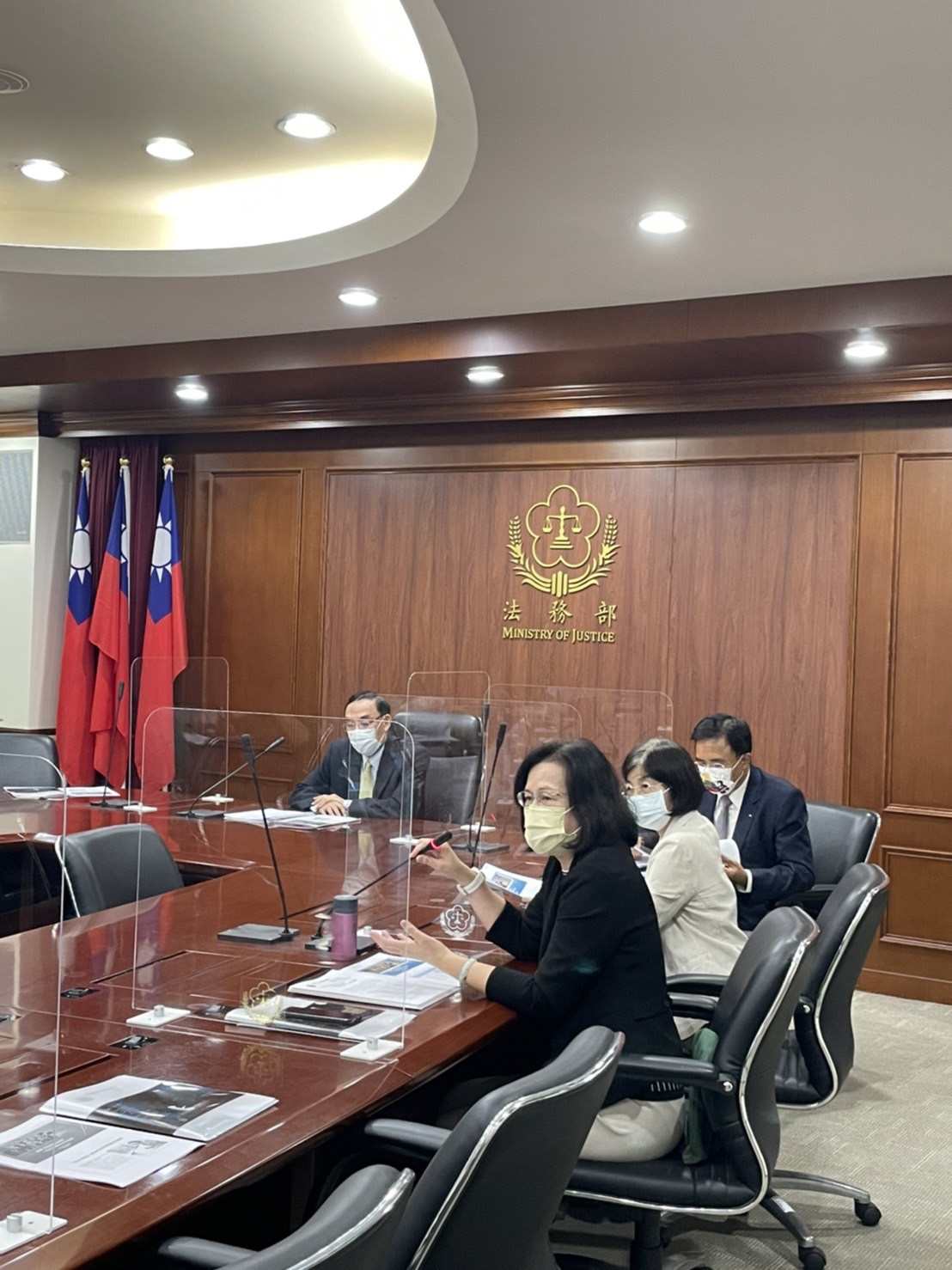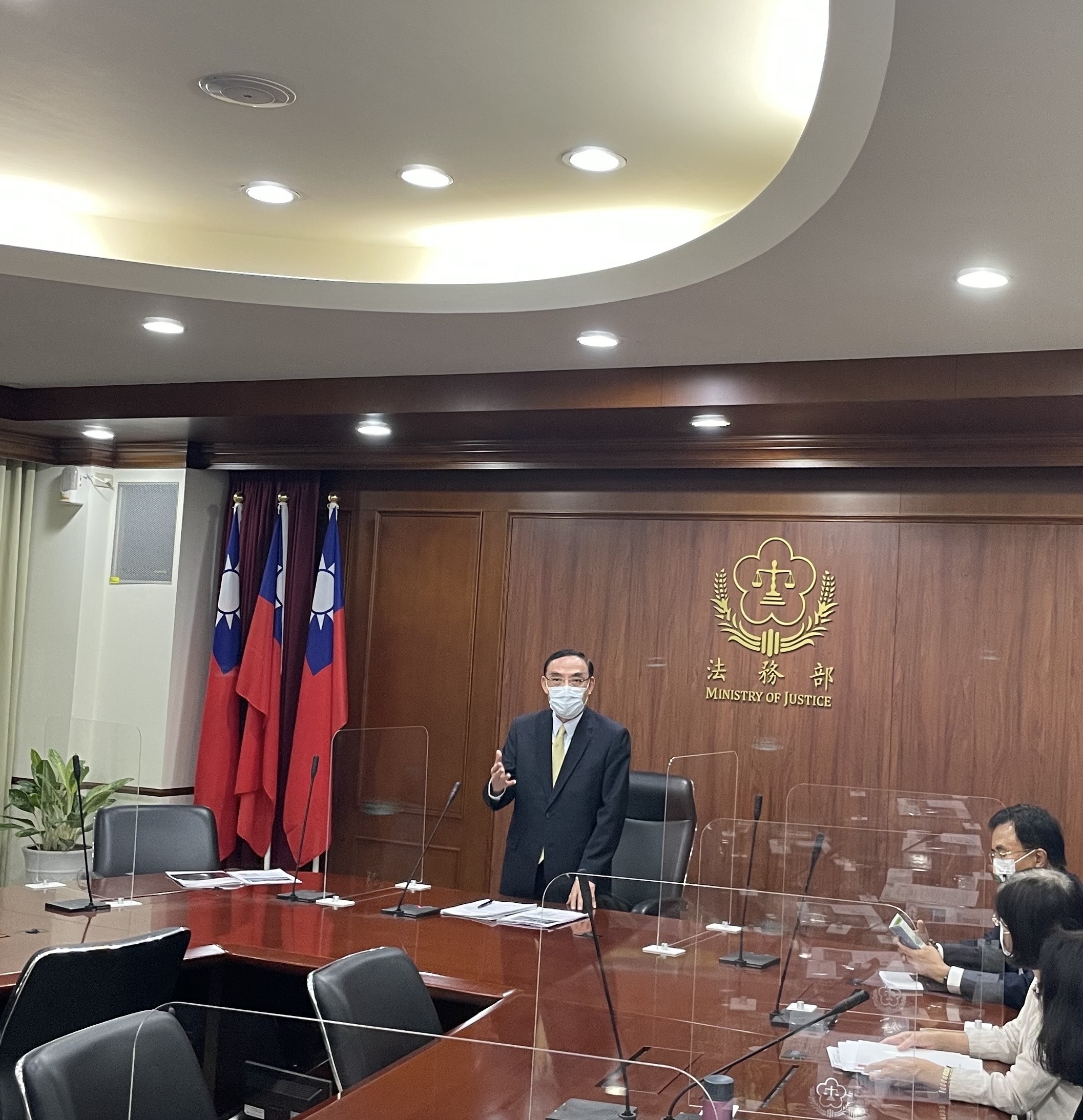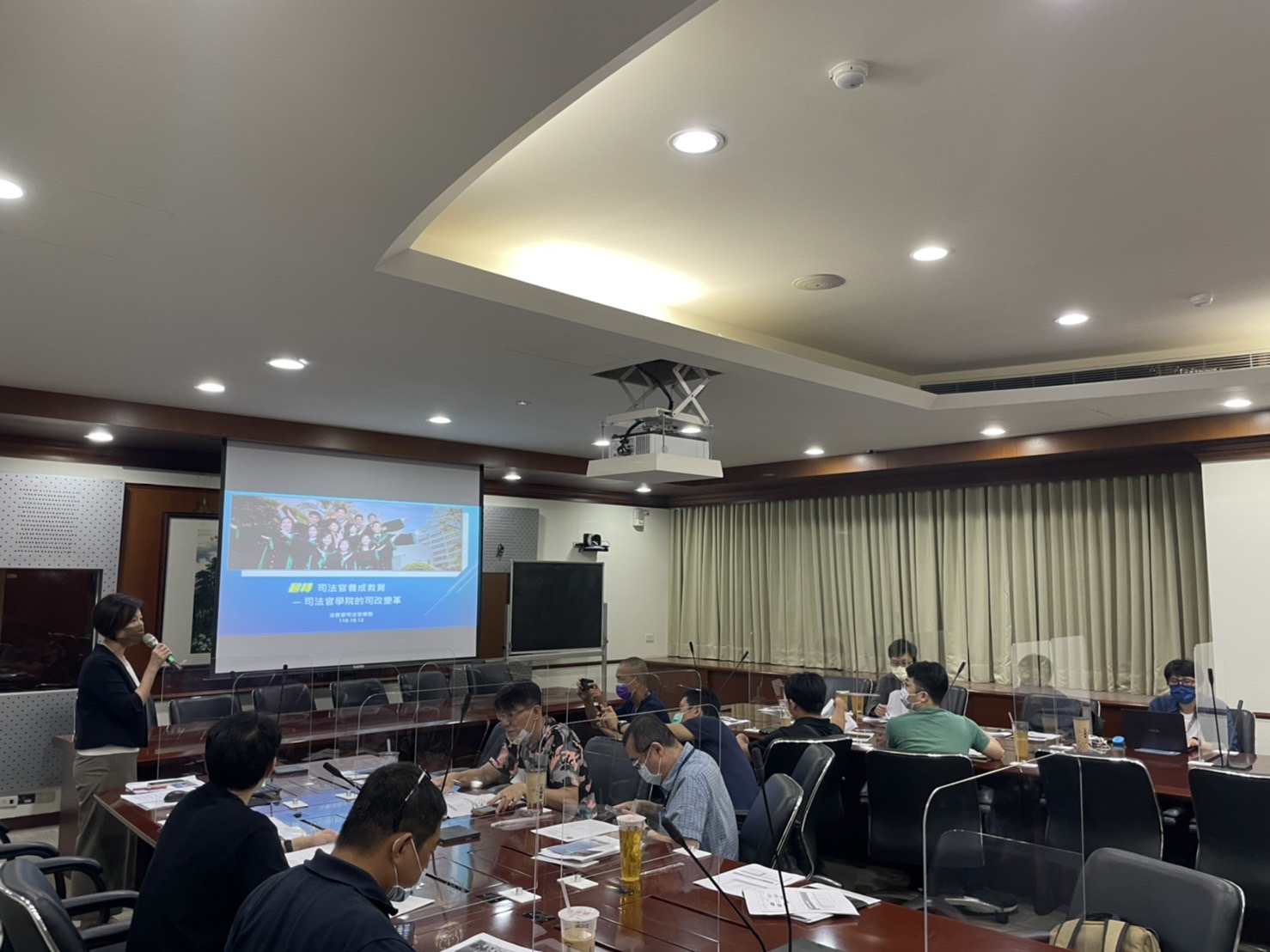Overturning the Formative Education of Judicial Officers ─ Diverse and Open Reforms in the Academy for the Judiciary
- Publication Date:
- Last updated:2021-10-20
- View count:718
Today, the Academy for the Judiciary, Ministry of Justice (“The Academy”) hosted a media tea-time talk to provide details on the Academy’s recent measures and efforts in the appointment and formative education of judicial officers to address the resolutions of the National Conference on Judicial Reform. Additionally, the Academy for the Judiciary explained the plans to comply with the Examination Yuan’s planned reforms for legal professionals with all-in-one testing and responded to the long-held expectations for reforms in the appointment and training systems of judicial officers.
The Academy for the Judiciary will emphasize “diversity, openness” as the theme of reforms with emphasis on the following points:
- The government’s focus on judicial reforms should be on the entrance and formative education system of judicial officers
During the 2015 elections, President Tsai announced her policy for judicial reforms and stated: “Society describes judicial officers with words such as ‘dinosaurs’ and ‘pacifiers’ due to judicial officers’ lack of social experience and capabilities, resulting in verdicts that deviate from social justice and public sentiments. Thus, we must reflect on current examination and appointment mechanisms to establish fair selection standards and training systems.” Also, during the 2017 National Conference on Judicial Reform, many resolutions were reached for “the cultivation, examination, and formative education of legal professionals”.
The appointment and training systems of judicial officers are a key aspect of judicial reforms. The Academy for the Judiciary carries the major responsibility of training judicial officers of the future and must meet public expectations to plan for a future where the public’s impression of judicial officer training can be overturned by creating a formative education system that is capable of earning public trust.
- The age of judicial officers should not be original sin, diversity training and multiple employment are the keys
Currently, society’s main criticism against the appointment and training systems of judicial officers is: judicial officers are too young, lack social experience, and have insufficient professional capabilities. To solve these issues, it’s necessary to implement reforms at initial testing as well as assist young judicial officer students in learning diverse perspectives and practical experiences in pre-employment training under current circumstances, and with a “multiple employment” policy to select lawyers as well as administrative prosecutors with diverse social experience and expertise to become judges and prosecutors, supplementing the insufficient experience of young judicial officers will be the focus of reforms.
Therefore, the Academy for the Judiciary is taking the following measures to achieve the aforementioned goals:
(1) Diverse courses, diverse internships, diverse on-the-job training
- Implement a diverse course that focuses on practical teaching, increased hands-on experience, and extended internships. Partner with NGOs to implement a professional series of human rights courses based on diverse teaching methods and group teaching to assist students with learning about diverse perspectives.
- Extend internships, shorten centralized training, internships at diverse private institutions and corporations
The current 2-year pre-employment formative education program for judicial officers spends 38.7% of the period in centralized training and 61.3% in practical internships; reforms have shifted towards training primarily based on practical internships.
To expand the diversity of internships, practical judicial internships in legal courts, prosecutor’s office (including second instance and special court prosecution) is expanded to include internships in administrative agencies, private organizations, hospitals, and private corporations (TSMC); as a response to the resolutions of the National Conference on Judicial Reform, internships to correctional facilities (prisons, detention centers, drug abuse treatment centers) have been added.
- Linking to diverse on-the-job training of prosecutors
The formative education of judicial officers must rely on linking to systematic, diverse on-the-job training to continue the accumulation of their required professional capabilities. Currently, the Academy for the Judiciary has planned a comprehensive and systematic on-the-job training course for prosecutors by integrating diverse teaching methods such as professional license training, visitations, mobile classrooms, field courses, and remote learning so that prosecutors may continue to advance their professional knowledge.
(2) Diverse appointment policy for prosecutors
Since 2017, the Ministry of Justice has selected lawyers with experience and exemplary performance for appointment as prosecutors; as such, the Academy for the Judiciary began the selection of a prosecutorial class. Starting in 2021, the Ministry of Justice has complied with the revised Judges Act to select 10 exceptionally performing administrative prosecutors with lawyer qualifications for appointment as prosecutors. The Academy for the Judiciary will gather prosecutor students from different sources into the 4th Prosecutorial Class and combine some courses of judicial officers and selected prosecutors so they may exchange their experiences and allow the diverse appointment policy to take better effect.
- Open and autonomous lifestyle management, strict management of professional ethics, elimination of unqualified students
The Academy for the Judiciary has trended towards more open and autonomous management of students’ lifestyles including the cancellation of mandatory stay in dormitories and canceling nighttime curfews to cultivate self-discipline in students. On the other hand, strict controls have been put in place on professional ethics to eliminate students who are unqualified to be judicial officers. In 2019, 2 judicial officer students from the 58th class were revoked of their training privilege due to poor learning attitude, poor dedication to their profession, and insufficient self-discipline; in 2021, a judicial officer student from the 60th class was revoked of his training privilege due to severe circumstances caused by his poor moral. The Academy for the Judiciary has strict controls on the qualification of judicial officers.
- Future outlook and challenges – reforming the examination system of legal professionals
(1) Active participation in the reform of examination training systems for legal professionals
Since March 2018, the Academy for the Judiciary has actively participated in the “Meeting to Coordinate and Implement Relevant Resolutions for the Examination, Training, and Appointment of Legal Professionals” formed by the Executive Yuan, Judicial Yuan, Examination Yuan, lawyers, and expert scholars. After 6 joint task force committees and 8 coordination committees, a preliminary consensus has been reached for reforming the examination, training, and appointment of legal professionals. In the future, judges, prosecutors, lawyers, and legal personnel will take a unified examination and jointly participate in a 1-year practical training program organized by the Academy for the Judiciary. After obtaining their qualifications as legal professionals, they are classified according to job expertise and can separately obtain lawyer qualifications and selection qualifications as prosecutors or legal personnel; once selected, students accept job assignments and pre-employment training before their appointments.
The Academy for the Judiciary will continue to proactively address the legislative process of the Examination Yuan’s new unified examination system and plan corresponding measures for the 1-year practical internship to successfully execute and advance examination reforms.
(2) Continued participation in reforms for legal education at universities
In the past 2 years, the Academy for the Judiciary has signed agreements to partner for practical courses and academic exchange with the College of Law at National Chengchi University (NCCU) and National Taiwan University (NTU). “Prosecutorial Practice” courses will be held at the College of Law in both universities so that prosecutors may participate in practical education on campuses, promote the connection of legal education and practical courses, and contribute to reforms for university-level legal education – the last piece of the puzzle for judicial reforms; additionally, these measures will correspond with the resolutions for reforming legal education at universities established at the National Conference on Judicial Reform.
Conclusion
When faced with the criticisms and expectations of our judicial officer training systems, the Academy for the Judiciary must continue to reform current systems and actively participate in the planning of future examination, training, and appointment systems. With our heritage in a wealth of training experience over the past 60 years and our courage to shoulder the new challenges of the future, we will continue to advance towards the goal of training and appointing judicial officers that can earn public trust.




